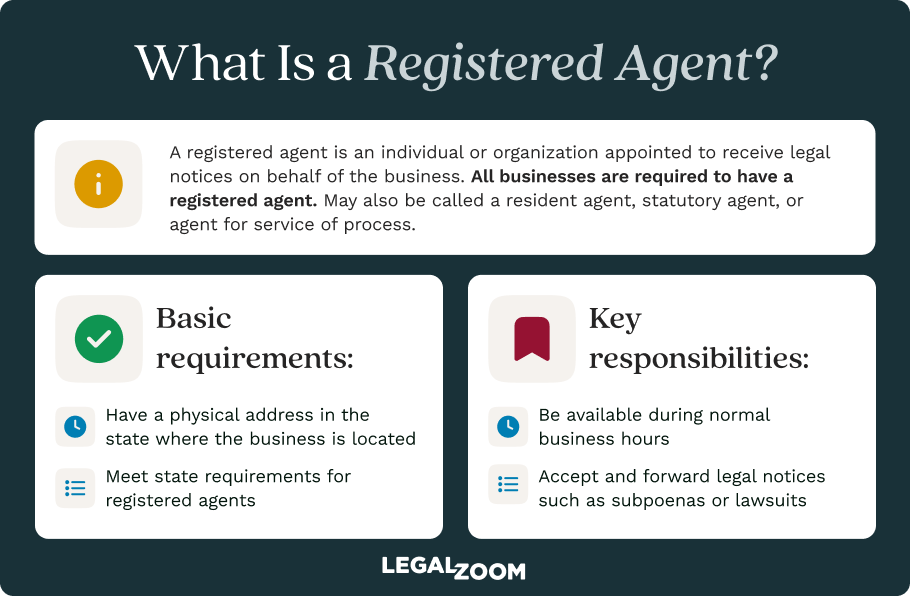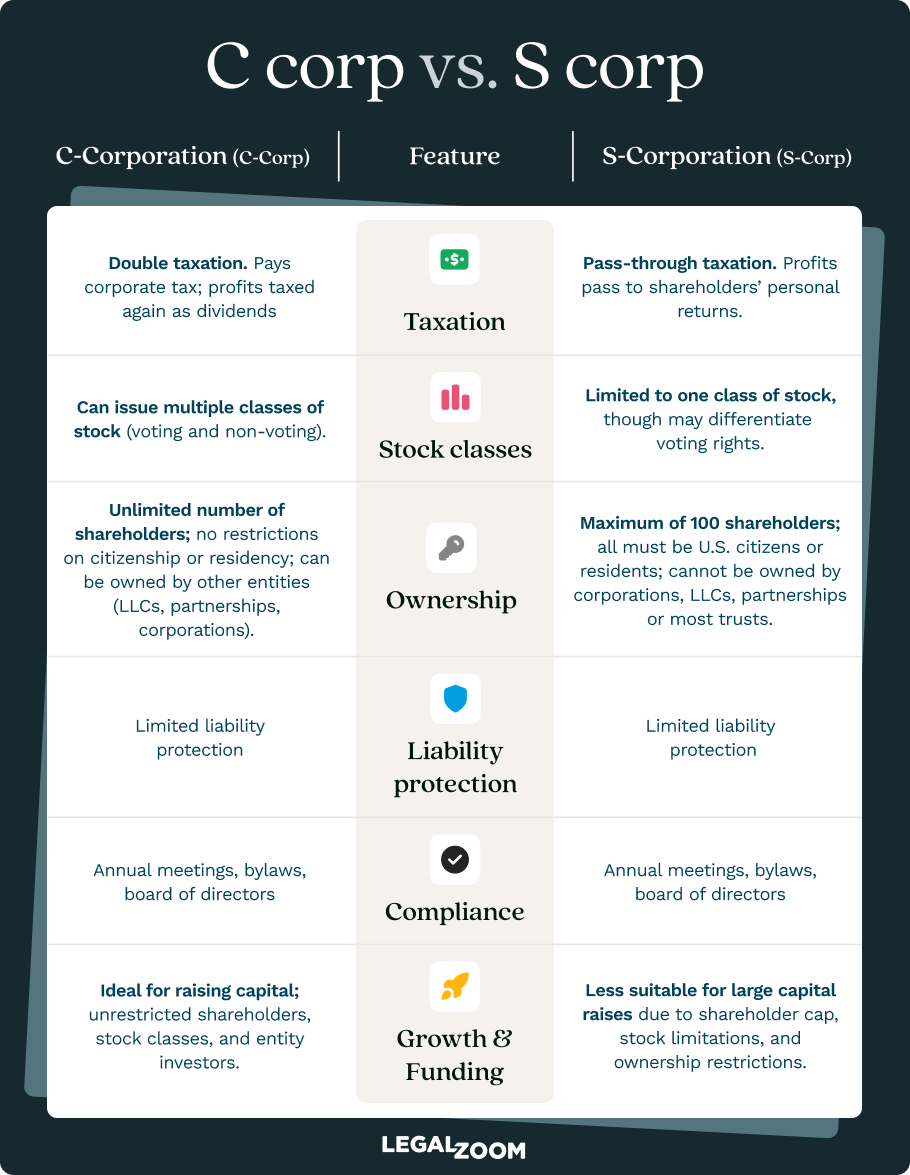When you're ready to form your corporation in California, you'll need to follow a few specific steps to get started. This comprehensive guide covers everything from checking name availability to understanding ongoing compliance requirements, including specific forms, fees, and legal obligations unique to the state of California.
What is a California corporation?
A California corporation is a legal business entity formed under the California Corporations Code that exists separately from its owners (shareholders). When you incorporate in California, you create a distinct legal entity that can own property, issue stock, enter contracts, and conduct business in its own name.
The following are key features of a California corporation:
- Limited liability protection. Shareholders' personal assets are generally protected from business debts and obligations in most circumstances.
- Separate legal entity. The corporation can sue and be sued, own property, and enter contracts independently.
- Perpetual existence. The corporation continues to exist even if ownership changes.
- Tax flexibility. A corporation can elect C corp or S corp tax treatment.
- Professional credibility. Corporate structure often enhances business credibility with customers, vendors, and lenders.
Steps to form a California corporation
Follow these essential steps to properly establish your California corporation.
Step 1: Choose a corporation name
Before forming your corporation, you'll need to verify that your desired business name is available and not already in use by another California entity. Verify name availability using the California Secretary of State's BizFile Online search portal, then enter your proposed corporation name and review search results to ensure no existing entity uses the same name.
Ensure compliance with California corporation naming requirements:
- General stock corporation names do not need to include the words “corporation,” “incorporated” or “limited,” or their abbreviations.
- The name of your corporation must be distinguishable from the name of an existing California corporation unless you have written permission.
- The name also cannot be misleading or include restricted words such as “trust” or “bank” unless the corporation has a certificate of approval.
- Professional corporations must include "Professional Corporation," "Prof. Corp.," "P.C.," or similar designation.
If you’ve decided on a name, but you’re not quite ready to file, you can reserve the name for 60 days by filing a Name Reservation Request Form with the California Secretary of State for $10.
Step 2: Appoint a California agent for service of process
Next, you need to designate an agent for service of process, also known as a registered agent. This person or company receives legal notices and other important documents on behalf of the business.
A California registered agent must:
- Be a California resident or a corporation authorized to conduct business in the state (if a corporation, it must be registered with the Secretary of State and fill out Form 1505)
- Maintain a California street address (can not be a P.O. box)
- Be able to receive and forward legal documents and official correspondence at the address on file
- Be available during normal business hours to receive legal documents

Step 3: File articles of incorporation
Now it’s time to complete and file your articles of incorporation with the California Secretary of State. Find the appropriate form on the Secretary of State’s website, then file online and pay the $100 filing fee. Provide all the required information, including corporation name, business address, agent for service of process, the total number of authorized shares, and incorporator signatures.
When defining shares in your articles of incorporation form, list the total number of shares authorized for issuance. If there will be multiple classes of stock, you’ll need to add these designations to your articles.
Step 4: Create bylaws and appoint directors
Next, draft corporate bylaws, which govern internal operations. Bylaws can also contain other rules for the operation of the company, including the way officers and directors are selected, their duties, and the way meetings are to be called and conducted.
The requirements for incorporation bylaws in the state of California are as follows:
- A California corporation is required to keep bylaws at its principal place of business in California. They are not filed with the Secretary of State.
- The bylaws must either specify the number of directors or set a minimum and maximum number of directors and state that the exact number will be decided by the board or the shareholders.
- Bylaws cannot include anything that is illegal or that conflicts with the articles of incorporation.
You’ll also need to appoint initial directors according to California requirements:
- A California corporation with three or more shareholders must have at least three directors. If a corporation has only one shareholder, it can have one or more directors. If a corporation has only two shareholders, it can have two or more directors.
- California does not specify any eligibility requirements for directors.
Step 5: Hold an organizational meeting
Once the California Secretary of State approves your articles of incorporation, it’s official: Your business legally exists, but you still have several important steps to complete. You need to hold your first board of directors meeting to adopt bylaws, appoint officers, and issue stock certificates to shareholders. Make sure to document all actions in corporate minutes.
Step 6: Obtain an EIN and open a business bank account
Apply for a federal employer identification number (EIN) with the Internal Revenue Service or with LegalZoom’s EIN service. You’ll need an EIN to hire employees or open a corporate bank account, which is necessary for separating corporate finances from personal accounts.
Step 7: File initial statement of information
Within 90 days of incorporation, you must submit an initial statement of information (California’s name for an annual report) and pay the $25 filing fee. The statement of information provides current information about directors, officers, and the registered agent. Learn more about how to file this form and subsequent reporting requirements.
Step 8: Register for state and local taxes
Finally, you’ll need to create an account with the California Franchise Tax Board. It’s important to have a clear understanding of your tax obligations, including whether you owe corporate income tax (for C corp), sales tax, and/or franchise tax.
All corporations must pay a minimum annual franchise tax of $800 for the privilege of doing business in the state. Check with your county or city to determine if there are any additional business taxes. You may also wish to enlist the help of a CPA or financial advisor.
This is also when you’ll need to obtain any necessary state and local business licenses. Get a round-up of all the permits or licenses you’ll need when you use LegalZoom’s business license service.
Costs and taxes for a California corporation
Here’s what to know about the potential costs and expected taxes when forming a California corporation.
State filing fees
- Articles of incorporation: $100
- Name reservation: $10 (optional)
- Initial statement of information: $25
Other common costs
- Registered agent service: $100–$300 annually if hiring a professional service
- Legal and professional fees: Varies based on complexity and professional assistance needed
- Business licenses: Varies by business type and location
- Corporate supplies: Corporate seal, stock certificates, minute book
California franchise tax overview
All California corporations must pay a minimum franchise tax of $800 annually, due even if the corporation has no income.
First-year exemption: New corporations are exempt from the minimum franchise tax for their first taxable year.
Optional S corporation election
California corporations can elect S corporation status for tax purposes if they meet specific eligibility requirements detailed by the IRS. To elect S corp tax status, file federal Form 2553 with the IRS.
S corporations pay a 1.5% tax on their net income or $800, whichever is greater.
Ongoing compliance: Statement of information and annual obligations
California corporations have several recurring compliance requirements to maintain good standing.
Statement of information
- Initial filing: Within 90 days of incorporation
- Annual updates: Every year, following this schedule
- Filing fee: $25 per filing
- Late penalties: $250 late fee
Annual meetings and minutes
California corporations should:
- Hold annual shareholder meetings
- Conduct regular board of directors meetings
- Maintain detailed minutes of all meetings
- Keep corporate records at the principal place of business in California
Franchise tax due dates
- Annual return and minimum payment due: By the 15th day of the 4th month after the close of the tax year
- Extension available: Automatic 7-month extension for filing (not payment), upon submitting Form 3539
Agent for service of process maintenance
- Ensure your registered agent information remains current
- Update the statement of information if your registered agent changes
- Never allow your corporation to be without a registered agent
How LegalZoom can help you create a corporation in California
There can be a lot on your plate when forming a new business, from submitting the right documents to creating your internal bylaws and more. LegalZoom can help you incorporate your business, guiding you with step-by-step guidance and kickstarting your company in minutes. Use our business formation service to start your new venture today.
FAQs: California corporation basics
What is a California corporation?
A California corporation is a legal business entity formed under California state law that provides limited liability protection to its shareholders while creating a separate legal entity capable of conducting business, owning property, and entering contracts.
How much does it cost to incorporate in California?
The basic cost to incorporate in California is $100 for the articles of incorporation filing fee. However, you'll have additional costs, including a minimum $800 annual franchise tax, registered agent fees ($100–$300 annually if using a service), and more.
What is a registered agent, and do I need one in California?
Yes, California law requires every corporation to have an agent for service of process, called a “registered agent” in most other states. An agent for service of process is a person or company that receives important legal documents, lawsuits, and official correspondence on behalf of your corporation. The agent must have a California street address and be available during business hours.
How do I look up a corporation in California?
Use the California Secretary of State's business search tool. You can search by entity name or entity number to find information about existing California corporations, including their status, registered agent, and filing history.
What is the statement of information and when is it due?
The statement of information is a required filing that provides current information about your corporation's directors, officers, and registered agent. It's due within 90 days of incorporation and then annually thereafter. The filing fee is $25.
What's the difference between a C corp and an S corp in California?
A C corporation is a legal business entity, while an S corp is a tax election. A C corporation faces double taxation (corporate income tax plus shareholder tax on dividends), while an S corporation is a pass-through tax designation where income and losses flow through to shareholders' personal tax returns. An LLC and a C corporation can elect to be taxed as an S corporation.

How do I maintain my corporation's good standing?
To maintain good standing in California:
- File your statement of information on time
- Pay annual franchise tax by the due date
- Maintain an agent for service of process with a California address
- Hold required meetings and maintain corporate records
- Comply with all applicable business licenses and regulations
Can I be my own registered agent in California?
Yes, if you're a California resident, you can serve as your own registered agent. However, you must have a California street address, be available during business hours to receive legal documents, and understand that your name and address will be part of the public record.
Jane Haskins, Esq., contributed to this article.



